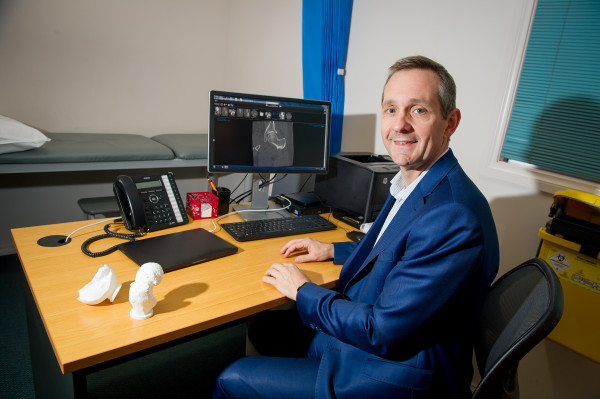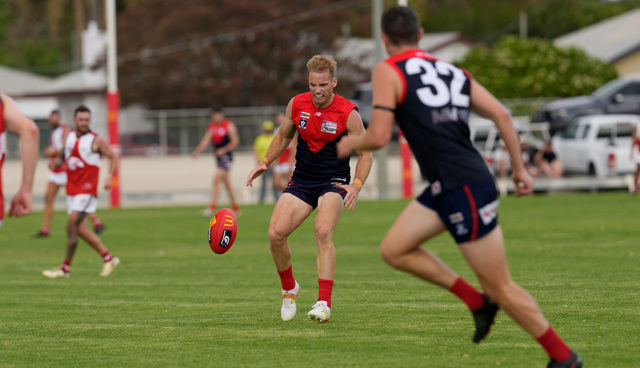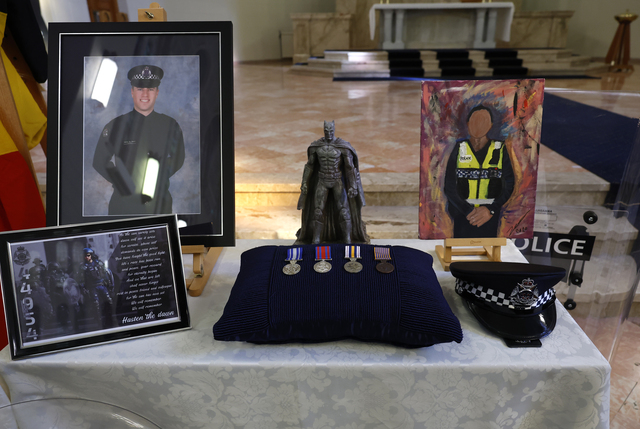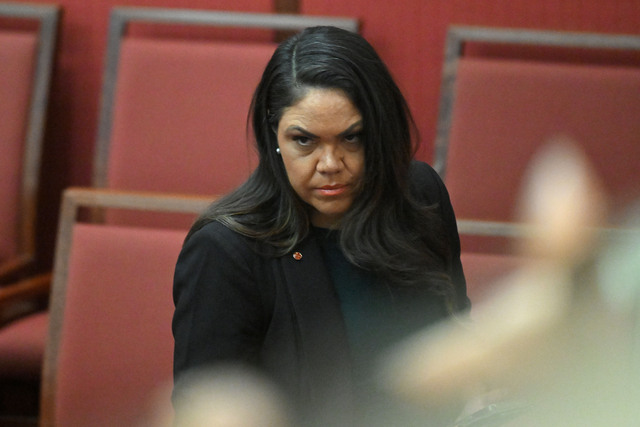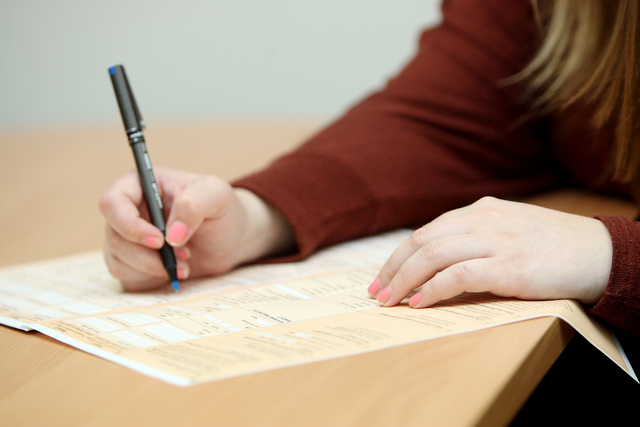Orthopaedic surgeon Associate Professor Mark Rickman has worked in some of London’s most prestigious hospitals, but says there is one trait that sets Sunraysia patients apart from most. Simon Cameron spoke to him about that trait and his exciting career.
MARK Rickman has operated on supermodels, A-list actors and actresses, top-flight sportspeople and was even on-call to the Royal family in Britain – but there’s something he says sets Sunraysia folk apart.
“Here it’s quite obvious that a lot of the patients – and I think it’s true of all country patients – they’re just tougher,” he says.
“They put up with stuff. We’ve had a few patients here who after surgery have just got up and walked out of the hospital.”
Associate Professor Rickman is an orthopaedic surgeon who, along with Adelaide Hip and Knee Centre colleague Dr Robert Baird, consults at Mildura Health Private Hospital.
It’s a long way from the theatres of King Edward VII Hospital in London, which Assoc Prof Rickman described as “typically old-world English” and whose patients included the Royal family and other celebrities.
Assoc Prof Rickman worked at St George’s Hospital in London for 10 years before Roger Vickers – the Queen’s orthopaedic surgeon – organised for him to take up a position at King Edward VII.
“There is a certain section of society that will only go to that hospital,” he says.
“And they’re fantastic patients because they live in a little bubble. Their world doesn’t cross yours and mine.
“They’re people that normally you only see on television or the papers.
“So they have the same medical problems but boy are their lives different to ours.
“Over my time I treated supermodels, actors and actresses, all sorts of people.”
Unfortunately for us, however, he was unable to “name names” of the rich and famous he’d operated on.
He was one of the surgeons who was on-call to the British Royal family.
“You’re on call for the household which includes everyone right down to the footmen and seemingly anyone who has ever met or ever had anything to do with the Royal family,” he says.
“So you’d get all sorts of phone calls from ‘Lord this’ or ‘Lord that’ who wanted a free consultation because he met Prince Charles once.
“I saw one or two of the lower members of the Royal family but I never operated on any of them thankfully.”
He went on to regularly treat members of the Saudi royal family and also spent time with soccer teams Tottenham Hotspur and Liverpool, which he described as highly rewarding.
It started when he operated on former Spurs goalkeeper Carlo Cudicini, who fractured his pelvis when he fell off his motorbike.
“That was interesting because in his contract it said he wasn’t to have a motorbike,” Assoc Prof Rickman says.
“Even worse than that he was knocked off his motorbike by an Arsenal fan.”
Assoc Prof Rickman says treating professional sportspeople was particularly interesting because their motivation to heal and get back into their sport was so high.
“They’re super human before their injury and they’re ridiculously motivated because they get paid when they get back playing and it’s their life,” he says.
“Carlo was the prime example. Most people who have a pelvic fracture like his, they’ll be four to five months before they’re back to normal day-to-day and probably six to eight months before they’re back playing sport.
“I saw him six weeks post-surgery and physically you couldn’t tell he’d had an injury.
“All of his muscle tone was back. By eight weeks he was back to training.”
But getting back to his Sunraysia patients, Assoc Prof Rickman can’t help but be impressed – if not somewhat bemused – by one particular man who presented during his first stint in Mildura.
Assoc Prof Rickman says the council worker had been playing football on the weekend and hurt his hip. After seeing a GP, he was given some painkillers but, after that didn’t sort the problem out, was referred to Assoc Prof Rickman.
“He had tracksuit pants on and no shoes and socks and comes in, I thought ‘what is going on here’?” Assoc Prof Rickman recalls.
“He had no shoes and socks on because he couldn’t physically get down to his feet.
“He’d actually broken his pelvis and broken his hip socket.
“He just kind of hobbled into the clinic and sat down.”
Assoc Prof Rickman operated on the man in Adelaide and was amazed at his resilience.
“I saw him back at six weeks and he just walked in and sat down,” he says.
“Most of the patients in Adelaide after that injury and that operation would still be on crutches and really struggling but there’s something about the people here, they’re just tough.”

